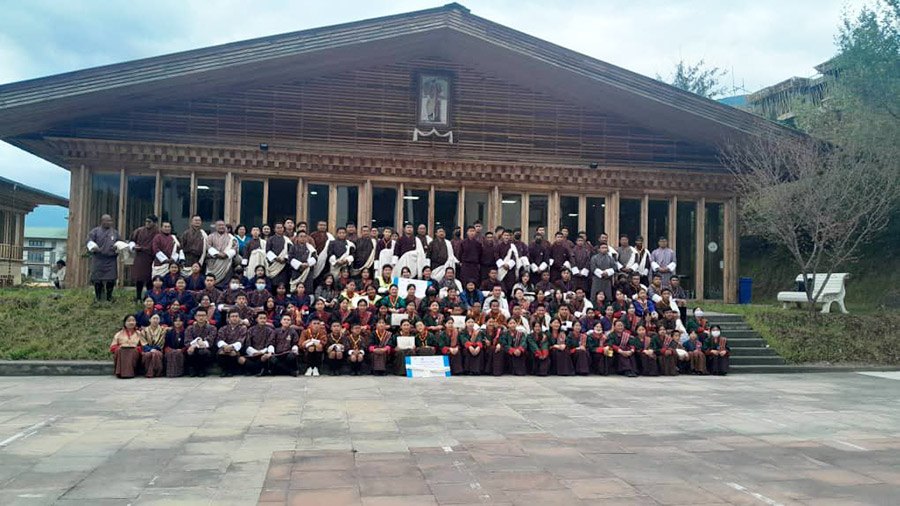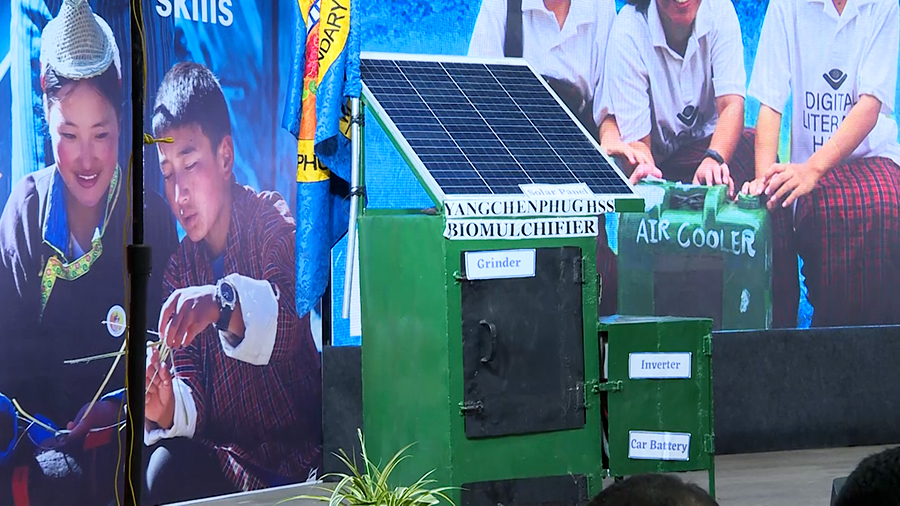
Khamdang Lower Secondary School from Trashi Yangtse and Yangchenphug Higher Secondary School in Thimphu won the National Innovation Challenge 2024. The National Innovation Challenge fosters innovation and provides students with opportunities to explore their potential. The challenge was launched in 2022.
 The Khamdang Lower Secondary School presented equipment to make pencils out of paper waste. Likewise, Yangchenphug Higher Secondary School presented a machine to recycle food waste in their school.
The Khamdang Lower Secondary School presented equipment to make pencils out of paper waste. Likewise, Yangchenphug Higher Secondary School presented a machine to recycle food waste in their school.
The winning teams were awarded Nu 120,000 as seed money to further develop and implement the innovation pitched at the competition.
“We’re going to use the seed money to implement it in our next project and also to buy equipment so that we can train more UPSHIFTERS,” said Pema Ugyen Namdrol, a student of Yangchenphug Higher Secondary School.
“We will purchase a pencil rod-making machine and we will produce more pencils using paper waste. We will give it free of cost to all the financially marginalised learners,” said Tshering Dawa, a student of Khamdang Lower Secondary School.
The competition also awarded seed money ranging from Nu 50,000 to 80,000 to four winners in the senior and junior categories.
 The education and skills development ministry says respective schools will monitor the usage of the seed money.
The education and skills development ministry says respective schools will monitor the usage of the seed money.
“We are providing them with a seed budget to implement and fine-tune their prototype. If the prototypes have the scope, we will try to garner support from potential donors such as UNICEF and other tech firms to invest in their projects,” said Chandra Norbu, the Programme Officer with the School Education Department.
About 14 schools were selected from about 100 schools to pitch their idea at the National Innovation Challenge.
The participants are involved in the UPSHIFT and UNISOLVE programme, part of the Adolescent Skills and Employability or ASE Bhutan Project. UPSHIFT and UNISOLVE programmes help students identify social issues and its solution, and develop critical skills.
“Through this UPSHIFT project, my students are now critical thinkers, they are problem solvers and whenever they have problems they solve them collaboratively,” said Laxuman Bista, a teacher at Gomtu Higher Secondary School in Samtse.
The ASE project has been implemented in 189 schools engaging about 20,000 students across the country.
Singye Dema
Edited by Sangay Chezom








